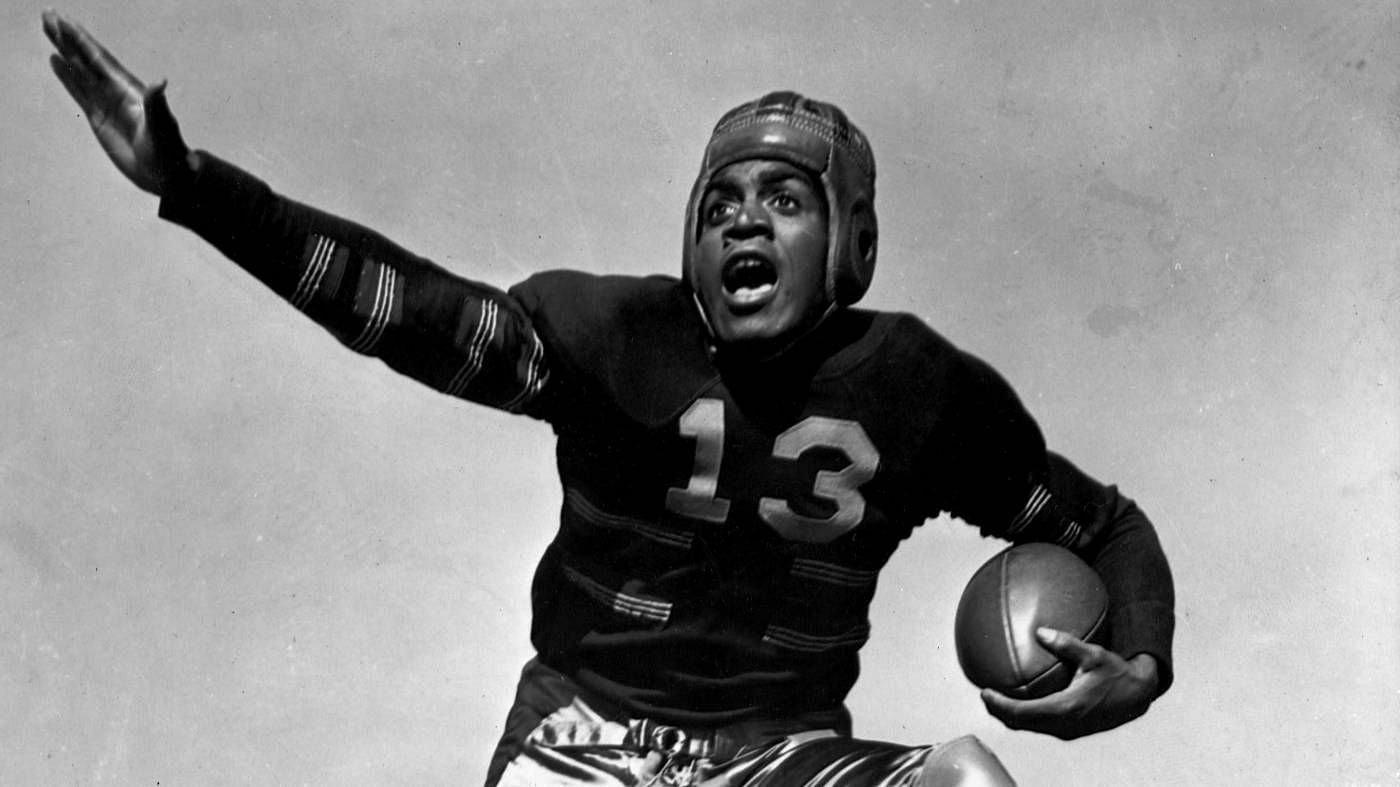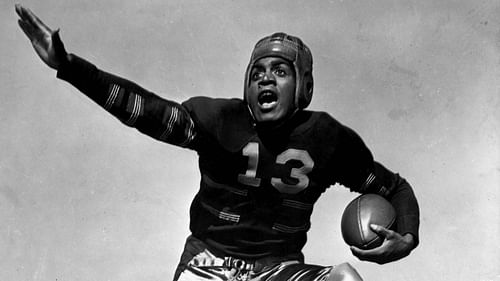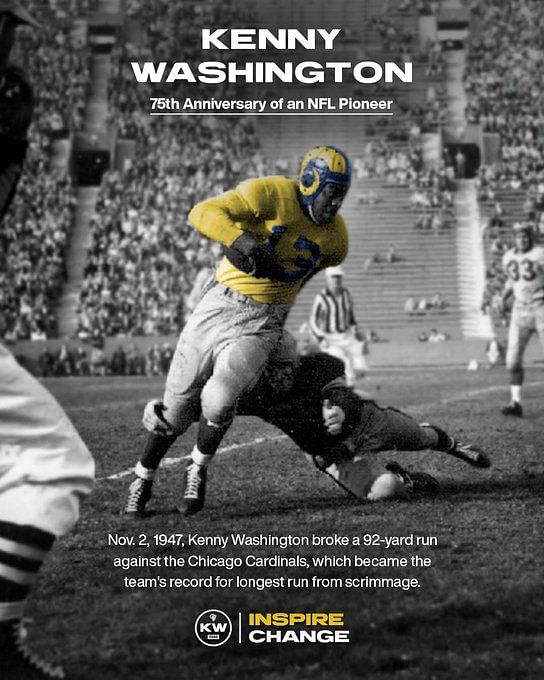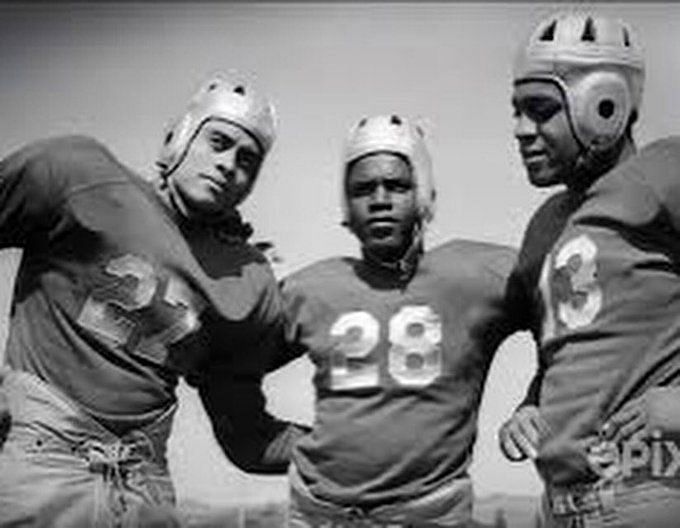
Who was the first-ever black NFL player?
As we observed Martin Luther King Jr. Day on Monday, and with February being Black History Month, this seems like the perfect time to take a look back at NFL history.
African-Americans currently make up around 70 percent of all players in the league, according to Statista.com. That's an increase of more than 10 percent from the previous season, but the league wasn't always that way. You can thank Kenny Washington for breaking the color barrier and being the first black player under contract in the NFL.
Kenny Washington signed his NFL contract in 1946

Kenny Washington joined the NFL in 1946 after getting signed by the Los Angeles Rams on March 21st.
When the Cleveland Rams moved west, they were pressured to be a racially integrated team when they decided to play in the publicly-owned LA Memorial Coliseum. Since both black and white taxpayers helped build the stadium, the city wanted a racially-diverse team to cheer for. So the Rams signed Kenny Washington after he returned from a USO tour.
Washington was born in Los Angeles and was a natural-born athlete, excelling in both baseball and football. Washington led both his high school baseball and football teams to the city championship during the same year. From there, Washington went to UCLA, once again playing baseball and football.
Washington was a tailback in football and set a school record for the most rushing yards in his career with 1,914 yards. The record stood for 34 years. With the UCLA Bruins, he was one of four African-American players on the 1939 roster.
Washington should have entered the NFL much sooner when George Halas wanted to sign him with the Chicago Bears; but at the time, the league did not permit integration in 1940.
Instead, Washington coached at UCLA and became part of the LAPD. He did continue his football career with the Pacific Coast Professional Football League and was the highest-paid player with the Hollywood Bears.
His NFL career was delayed after he underwent surgery on both knees due to having rickets as a child and once getting hit by a car. Despite issues with his knees and being a running back, Washington was able to lead the league in yards per carry in his second of three seasons with the Rams. His 92-yard touchdown run still stands as the team record for the longest run from scrimmage.
He retired after a short career in 1948, but he did go out on a high note. 80,000 fans attended his final game and honored him with a standing ovation.
Sadly, Kenny Washington passed away at the age of 52 on 24 June 1971. His jersey was the first to be retired by UCLA in 1956.
A major aspect of his legacy stems from influencing Brooklyn Dodgers president Branch Rickey. After seeing blacks and whites playing together in the violent contact sport of football, he realized the MLB should be integrated as well. Rickey went on to sign Kenny Washington's college teammate Jackie Robinson in 1947... yes "that" Jackie Robinson. Robinson was the first African-American MLB player, starting at first base for the Dodgers in 1947. He won the World Series in 1955 and his jersey (#42) remains iconic to this day.
However, the NFL ignored Kenny Washington and the post-war integration and gave it minimal attention. One reason could be that baseball ruled the sports world back then, mostly due to Jackie Robinson. Another could be Washington's short career in the league. Believe it or not, but he is not in the Pro Football Hall of Fame. You can argue with his legacy as a football player, but you can't deny that he was a trailblazer that helped ignite the legacy of Jackie Robinson.

